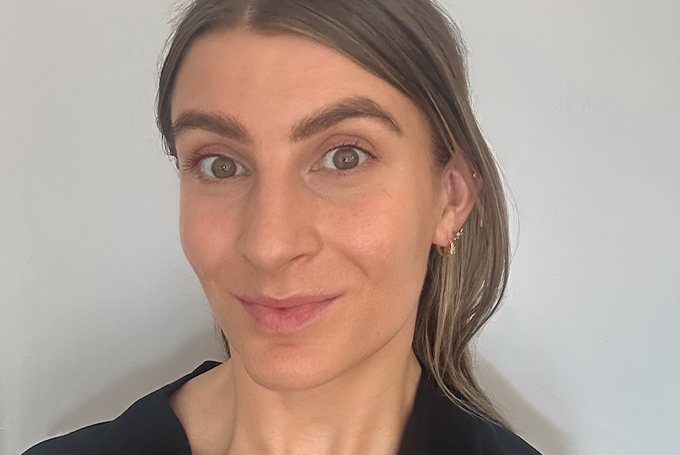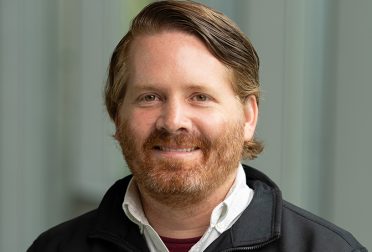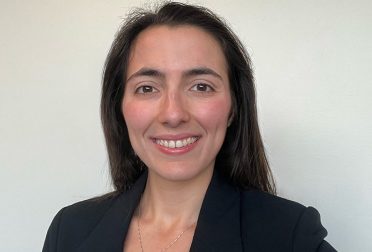Rachel Burton learned about MIT System Design and Management at Shell Techworks, where she’s had the chance to work alongside some of our program’s alumni. She’s also served as a project partner for the SDM spring projects. “We had members on the team from all these different industries,” she says. “So much of the value of these types of programs is understanding how people use a certain technology in their industry and how that might be applied to your work. I’m most excited about that cross-disciplinary learning.”
Can you tell me about your work and your work background?
Before 2020 I worked for Shell’s Wells business in a variety of roles. It was a great experience, and I was able to work in Canada, the U.S., Argentina, and Scotland. I loved the fast pace and the technical and operational challenges, but I wanted to explore other parts of Shell’s business, particularly in technology and new energies. So in 2020 I joined Shell Techworks, Shell’s innovation center in Boston. We have two groups: Systems Engineering, which analyzes complex systems and data trends to identify high-value opportunities, and Product Development, which turns ideas into testable prototypes and valuable products. I currently work in product development, building early-stage prototypes that turn into actual products, typically involving a combination of mechanical, electrical and software engineering. The goal is to maximize our functionality while minimizing risk. We work across different energy systems, such as traditional oil and gas, electrification, hydrogen, and more. And we have the ability to apply a diverse range of skill sets across multi-disciplinary teams. It’s exciting to be part of a team making a meaningful impact.
What’s something you hope to learn in the core class?
I’m lucky to have had exposure to the core class through being an industry partner of a spring project. That experience offered me a fresh perspective on systems engineering beyond what I typically encounter in my work. And I was introduced to a wider array of systems analysis tools. I’m really looking forward to diving deeper into the theory behind these tools and building up my skillset, such that I can choose the right tool for the right problem. Given that I’ll be working throughout my studies, being able to use these tools in my day-to-day work will really help me cement my understanding. When things get complex, how can I best adapt to meet the requirements of the problem?
Are there specific courses you’re interested in?
So many! Browsing the course catalogue was beyond exciting, but there are only so many courses you can choose. I would like to grow my technical and commercial skillsets in energy and climate technology. I’m really excited to be taking Climate Energy Ventures and Mapping and Evaluating New Energy Technologies this fall. I’m trying to gain a stronger foundation on how ventures are created and ultimately succeed. On the engineering side, I’m particularly interested in material sciences and electrochemistry, which are critical areas for the energy transition. I’m also interested in analytics, optimization, and AI courses. I do some optimization in my current role, but I’d like to be able to understand that more deeply.
What are you looking forward to about meeting your new classmates?
I enjoy environments where you work on a multidisciplinary team. I find the perspectives that are generated and the solutions that we ultimately arrive at are much more eloquent when a variety of perspectives are considered. I completely anticipate that that will translate to SDM. Not only are you getting cross-disciplinary across the engineering disciplines, but you also have variety in the industry folks are working in and their function. Some people are coming with a more corporate mindset, or they’re deep technical experts working in the lab space. Certainly it’s easier to get alignment on the next step if everyone thinks the same way. But is that the best step? I’m honestly looking forward to the healthy friction that comes with working on such diverse teams, knowing that that will ultimately lead to a stronger, more innovative result.
Is there anything else about joining the program and attending MIT that you’re really excited about?
So much of what I’m excited for beyond the learning and the coursework is everything else that comes with this ecosystem. I’m lucky to already be in Boston and have already experienced the depth that exists here. And it is exhilarating. It makes you really think critically about where you want to be next. I’ve also had the experience of attending the MIT Energy Conference. I’m looking forward to deepening connections there and getting involved in the MIT Energy Initiative and the Energy and Climate Club. I’m excited to learn from classmates and figure out where my blind spots are. If there’s ever been a place to close knowledge gaps, it’s here.




